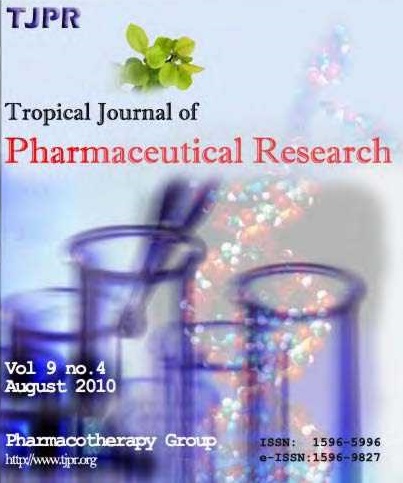Sanggenon C inhibits proliferation of breast cancer cells and reduces HIF-1α/VEGF pathway activity under hypoxia conditions
IF 0.6
4区 医学
Q4 PHARMACOLOGY & PHARMACY
引用次数: 0
Abstract
Purpose: To evaluate the function and mechanism of sanggenon C (SC) on breast cancer (BC) cells.Methods: The effect of SC on malignant processes of BC was studied through cell counting kit-8, colony formation, flow cytometry, Transwell, wound-healing and western blot experiments. Besides, the related mechanism of action was explored using western blot assay.Results: SC reduced the cell viability of MDA-MB-231 and MCF-7 cells with half-maximal concentration of (IC50) value of 17.09 and 17.32 μM, respectively. SC also decreased the area ratio of colonies in the plate, but increased the apoptosis and G0/G1 phase arrest in both cell lines. Furthermore, SC decreased the number of invasion cells, but elevated the relative wound width of both cells. Moreover, SC treatment neutralized the hypoxia-induced level of HIF-1α/VEGF signaling.Conclusion: SC suppresses proliferation, mobility and invasion, but induces apoptosis and G0/G1 phase arrest in BC cells, as well as deceased HIF-1α/VEGF pathway activity under hypoxia conditions. The findings of this study reveal that SC is a potential agent for BC management.缺氧条件下,Sanggenon C抑制乳腺癌细胞增殖,降低HIF-1α/VEGF通路活性
目的:探讨sanggenon C (SC)对乳腺癌(BC)细胞的作用及其机制。方法:通过细胞计数试剂盒-8、菌落形成、流式细胞术、Transwell、创面愈合和western blot实验,研究SC对BC恶性过程的影响。并采用western blot方法探讨其作用机制。结果:SC降低MDA-MB-231和MCF-7细胞活力,半数最大浓度(IC50)值分别为17.09 μM和17.32 μM。SC还降低了平板上菌落的面积比,但增加了两种细胞系的凋亡和G0/G1期阻滞。此外,SC减少了侵袭细胞的数量,但增加了两种细胞的相对创面宽度。此外,SC治疗可中和缺氧诱导的HIF-1α/VEGF信号水平。结论:缺氧条件下,SC可抑制BC细胞的增殖、迁移和侵袭,但可诱导细胞凋亡和G0/G1期阻滞,降低HIF-1α/VEGF通路活性。本研究结果表明,SC是BC管理的潜在代理。
本文章由计算机程序翻译,如有差异,请以英文原文为准。
求助全文
约1分钟内获得全文
求助全文
来源期刊
CiteScore
1.00
自引率
33.30%
发文量
490
审稿时长
4-8 weeks
期刊介绍:
We seek to encourage pharmaceutical and allied research of tropical and international relevance and to foster multidisciplinary research and collaboration among scientists, the pharmaceutical industry and the healthcare professionals.
We publish articles in pharmaceutical sciences and related disciplines (including biotechnology, cell and molecular biology, drug utilization including adverse drug events, medical and other life sciences, and related engineering fields). Although primarily devoted to original research papers, we welcome reviews on current topics of special interest and relevance.

 求助内容:
求助内容: 应助结果提醒方式:
应助结果提醒方式:


